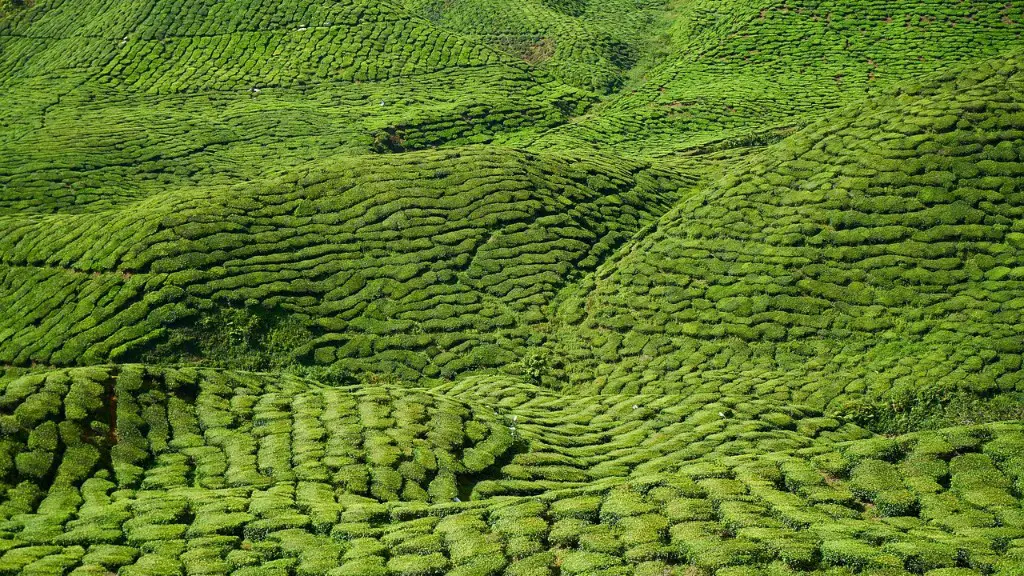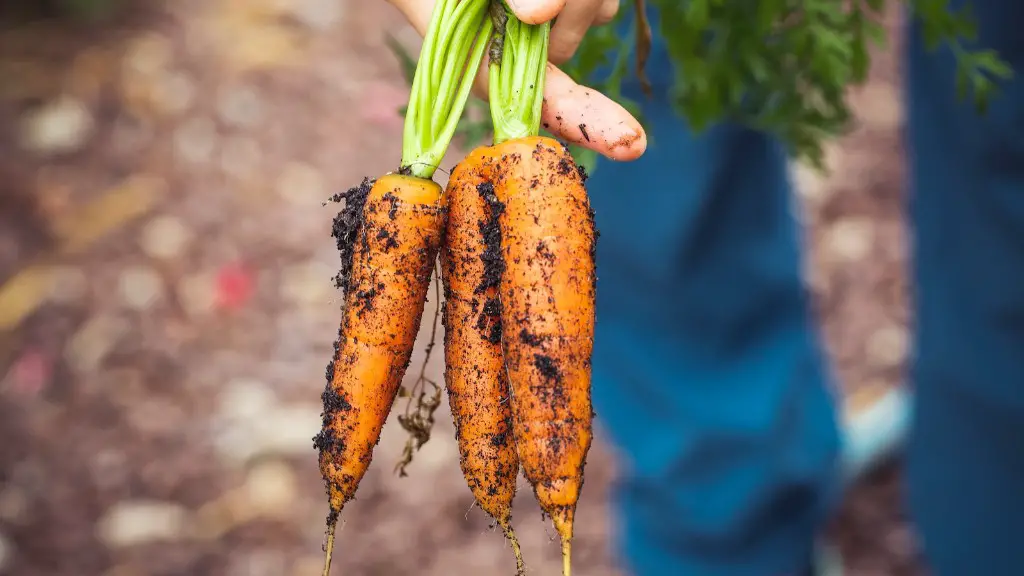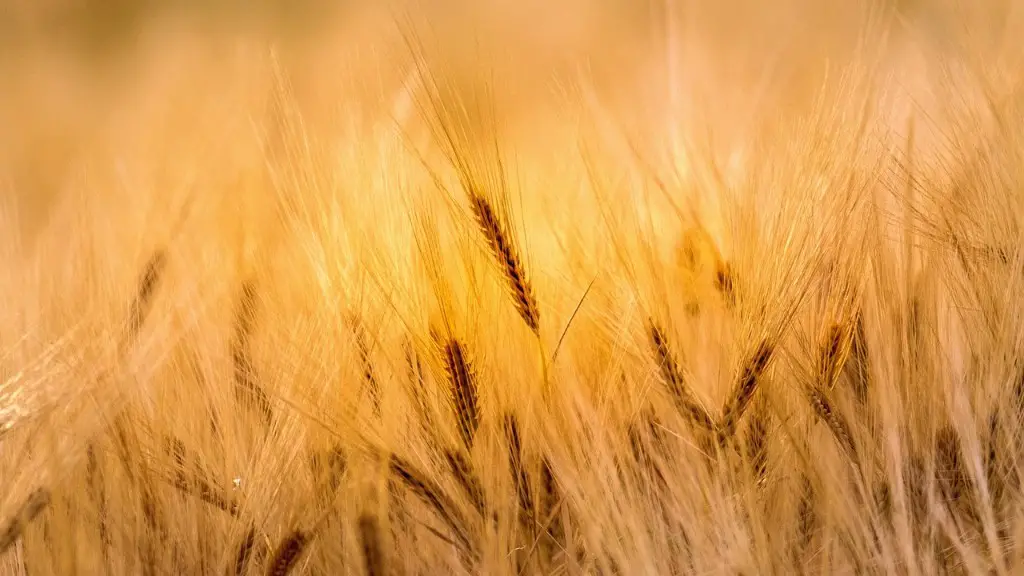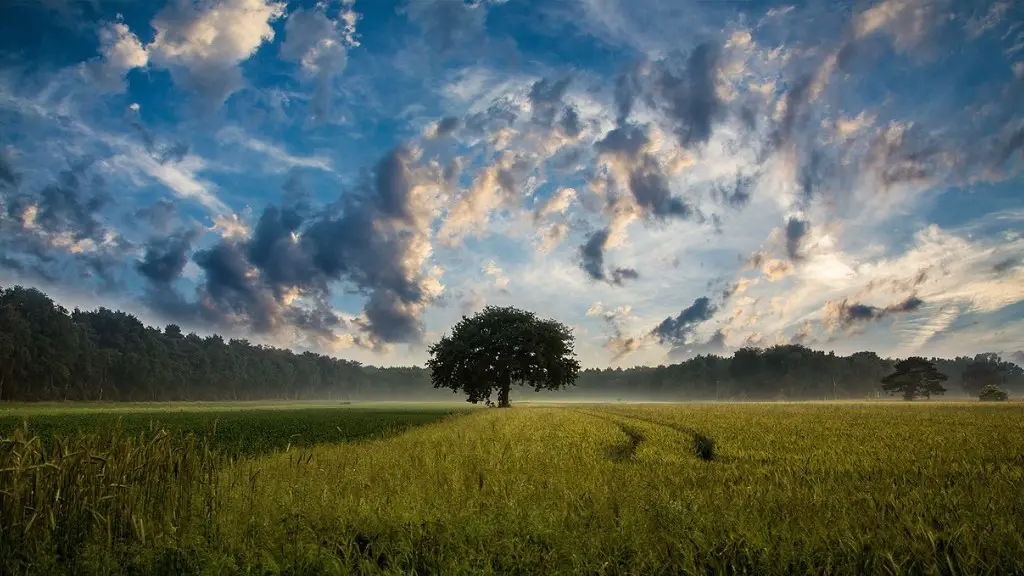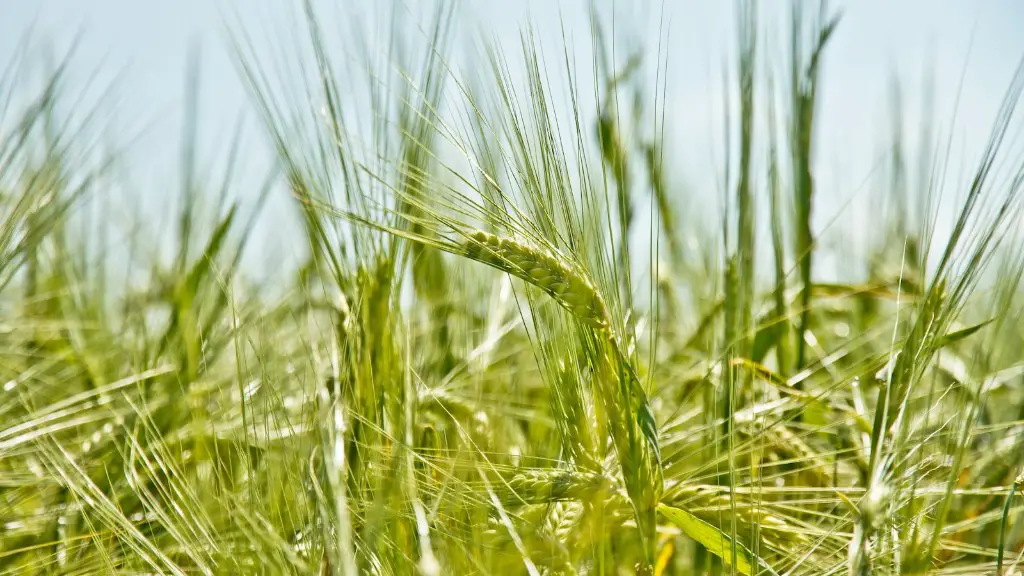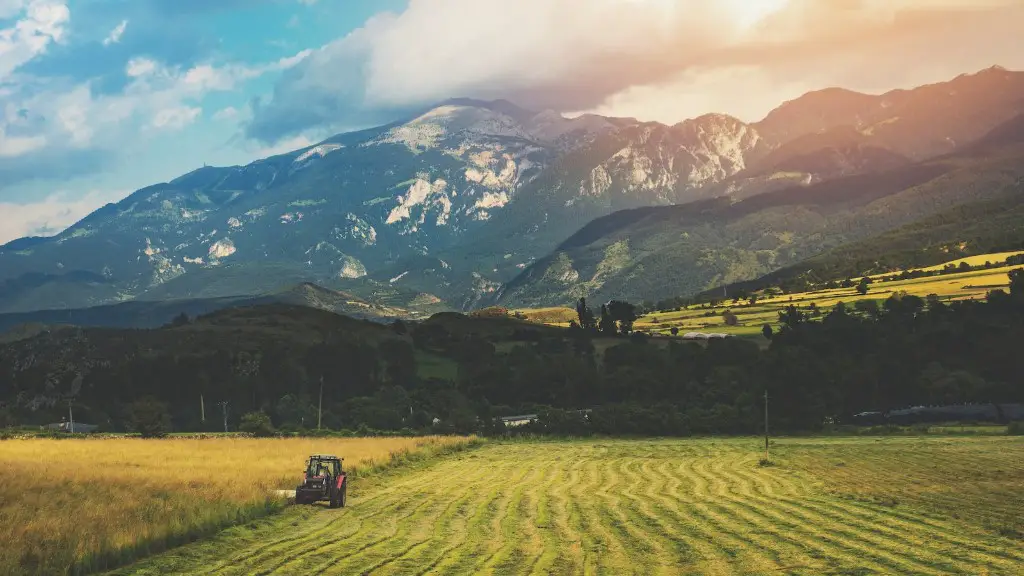Agriculture has been identified as a leading source of water pollution in the United States. The impact of agriculture on water pollution can be both direct and indirect. Direct impacts occur when pollutants are directly applied to land or water, such as when pesticides and fertilizers are used. Indirect impacts can occur when pollutants are generated from agricultural activities and then deposited into water bodies, such as when animal waste and sediment are carried into streams by runoff. Agriculture can also contribute to water pollution through activities such as irrigation and livestock grazing.
There are a number of ways in which agriculture can contribute to water pollution. For example, pesticides and fertilizers can runoff from farmland into water bodies, polluting them. In addition, livestock can also contaminate water sources with their waste. Finally, agricultural activities can lead to soil erosion, which can in turn cause water pollution by carrying sediment into waterways.
How does agriculture lead to water pollution?
Agricultural contaminants, like fertilizers and pesticides, can travel off of the farmland where they are applied and into surface water and groundwater. This can impair the water quality in these areas and potentially harm the environment and human health. It is important to be aware of this issue and take steps to prevent or reduce agricultural contamination of water resources.
Agriculture is one of the leading sources of pollution in many countries. Pesticides, fertilizers and other toxic farm chemicals can poison fresh water, marine ecosystems, air and soil. They also can remain in the environment for generations.
How does agriculture affect the water crisis
Water is essential for agriculture, but it is also a major cause of water scarcity. Farming accounts for almost 70 percent of all water withdrawals, and up to 95 percent in some developing countries. We will have to use our natural resources more wisely as time goes on and when it comes to water there is no exception.
Agricultural runoff is a major problem that can lead to water pollution. Poorly managed animal feeding operations, overgrazing, and overworking the land can all contribute to agricultural runoff. This can cause problems with water quality and can lead to the contamination of drinking water supplies.
How does agriculture waste water?
Agricultural wastewater can come from a variety of sources, including but not limited to manure, milking center wash water, barnyard and feedlot runoff, egg washing and processing, slaughterhouse wastewaters, horse washing waters, and runoff associated with composting. Each of these sources can contain a range of pollutants that can impact water quality if not properly managed.
Agricultural pollution is a major problem that has many different sources. Nitrogen-based fertilizers produce potent greenhouse gases and can overload waterways with dangerous pollutants. Chemical pesticides with varying toxicological effects can contaminate our air and water or reside directly on our food. This problem needs to be addressed urgently in order to protect our environment and our health.
How much does agriculture contribute to pollution?
Different manure treatment and storage methods can affect the amount of greenhouse gases that are produced. Manure management can account for up to 12% of the total greenhouse gas emissions from the agriculture economic sector in the United States. Different methods of manure treatment and storage can help to reduce these emissions.
Water pollution is one of the main environmental problems faced by the world today. It is caused by a number of factors, but the most significant ones are global warming, deforestation, industry and agriculture, rubbish and faecal water dumping, maritime traffic and fuel spillages.
Global warming is causing the glaciers to melt, which in turn is causing the sea levels to rise. This is leading to a contamination of the water supply, as well as an increase in the number of flooding events.
Deforestation is another major cause of water pollution. When trees are cut down, the soil is exposed to the rain and the run-off from the land. This run-off contains pesticides and other chemicals which can pollute the water supply.
Industry and agriculture are also major sources of water pollution. Industrial waste is often dumped into rivers and lakes, and this can contain harmful chemicals and pollutants. Agricultural run-off can also be a problem, as it can contain pesticides and fertilisers.
Rubbish and faecal water dumping are also major causes of water pollution. When rubbish is dumped into the water, it can cause a build-up of toxins and bacteria. Faecal water can also contain harmful pathogens which can contaminate the water
Does agriculture threaten the quality of water
Agricultural practices may negatively impact water quality in several ways. Poorly managed animal waste can elevates concentrations of nutrients, fecal coliforms, and sediment loads in water bodies. This can lead to eutrophication of the water, which may eventually damage aquatic ecosystems. Additionally, careless use of pesticides and fertilizers can also contaminate water supplies. It is therefore important to carefully consider all potential impacts of agricultural practices on water quality before implementing them.
There are a number of agricultural activities that can cause NPS pollution. These include:
-Poorly located or managed animal feeding operations.
-Overgrazing.
-Plowing too often or at the wrong time.
-Improper, excessive, or poorly timed application of pesticides, irrigation water, and fertilizer.
If any of these activities are not managed properly, they can lead to pollution of our natural resources.
How can we prevent water pollution from agriculture?
planting grasses, trees and fences along the edges of a field that lies on the borders of water bodies They could act as buffers, and nutrient losses can be avoided by filtering out nutrients before reaching the groundwater Reduction in tillage of the fields in order to reduce runoffs, soil compaction and erosion.
Agricultural residues: Agricultural residues are the byproducts of crops that are left over after harvest. These residues can include stalks, leaves, and other plant matter. If not managed properly, agricultural residues can contribute to water pollution.
Fertilizers and pesticides: Fertilizers and pesticides are applied to crops to help them grow. However, if these chemicals are not used properly, they can runoff into rivers and contaminate the water.
Animal husbandry: Animal husbandry is the practice of raising animals for food. Animal manure can contain harmful bacteria and nutrients that can pollute rivers if not managed properly.
Excess salts from applied irrigation water: When irrigation water is applied to crops, it can leave behind salts. These salts can build up in the soil and eventually runoff into rivers, contaminating the water.
Is agriculture the leading cause of pollution
Farms in the United States are responsible for a large portion of the country’s air pollution, specifically ammonia. Ammonia pollution comes from fertilizers and livestock manure, and it can have harmful effects on human health and the environment. There are a number of ways to reduce ammonia pollution from farms, and it is important to take action to protect our air quality.
There are many ways water can become polluted, but seven of the major ways are:
1. Industrial Waste: Industries and industrial sites across the world are a major contributor to water pollution.
2. Marine Dumping: Sewage and wastewater are often dumped into the ocean, polluting the water.
3. Oil Leaks and Spills: Oil spills and leaks can pollute both fresh and salt water.
4. Agriculture: Pesticides and other chemicals used in agriculture can pollute water.
5. Global Warming: melting glaciers and ice caps can release pollutants into the water.
6. Radioactive Waste: Nuclear power plants and other sources of radioactive waste can contaminate water.
7. Sewage and Wastewater: Sewage and wastewater can contain harmful pathogens and chemicals, polluting water.
What are 7 major sources of water pollution?
Water pollution is any contamination of water with chemicals or other foreign substances that can have harmful effects on humans, animals, or plants. Water pollution can come from a variety of sources, including sewage, agriculture, oil, and radioactive substances.
Water pollutants can be divided into three main categories: substances that harm humans or animals by causing disease or physical damage; substances or situations that decrease the oxygen content of water, leading to anaerobic decay and the death of aquatic life; and substances that are indirectly harmful, either by creating nuisance conditions or by polluting other water resources.
How much water does agriculture waste
According to a recent study, on average, farms around the world account for 70% of all water that is consumed annually. Of that 70% used by farmers, 40% is lost to the environment due to poor irrigation systems, evaporation, and overall poor water management. These statistics are alarming, and highlight the need for farmers to invest in more efficient irrigation systems and water management practices. Otherwise, the world’s freshwater resources will continue to dwindle, putting even more pressure on our already strained water supplies.
There is a lot of debate surrounding the impact of agricultural livestock on the environment. Some say that they are responsible for a large proportion of global greenhouse gas emissions, most notably methane. Others say that overgrazing is a major problem regarding environmental sustainability. In some places, stretches of forage land are consumed so extensively that grasses are unable to regenerate.
Final Words
Agriculture has a significant impact on water pollution. Agricultural activities can lead to the contamination of surface and groundwater resources with dissolved minerals, pesticides, and other chemicals. The application of animal manure and fertilizer can also result in water pollution, as these materials can leach harmful substances into the environment. In addition, agricultural activities can contribute to the growth of harmful algal blooms, which can release toxins into the water and create serious health problems for humans and animals.
Agriculture affects water pollution in many ways. Pesticides and herbicides can runoff from fields and enter waterways, polluting the water. Fertilizers can also runoff and pollute water, as well as contribute to the growth of harmful algae blooms. Animal waste from livestock can pollute water, and agricultural runoff is a leading cause of water pollution in the United States.
